Hanging bird feeders in bear country requires extra precautions to avoid attracting unwanted visitors. Bears have an extraordinary sense of smell and can be easily drawn to bird feeders due to the scent of seeds, suet, or nectar. To prevent this, it’s important to hang feeders in places that are difficult for bears to reach. Start by placing the feeder at least 10 feet off the ground and 5 feet away from any structures or trees that bears might climb. You can use a sturdy cable or pulley system between trees to keep the feeder suspended at an inaccessible height.
Additionally, it’s a good idea to take down feeders during the night when bears are most active. By storing your feeders inside during dusk and dawn, you reduce the likelihood of attracting bears into your yard. Another option is installing an electric fence around the area where you hang your feeder, giving bears an unpleasant shock if they come too close.
By following these strategies, you can enjoy birdwatching without putting yourself or the bears at risk.
How Do You Make a Bear-Proof Feeder?
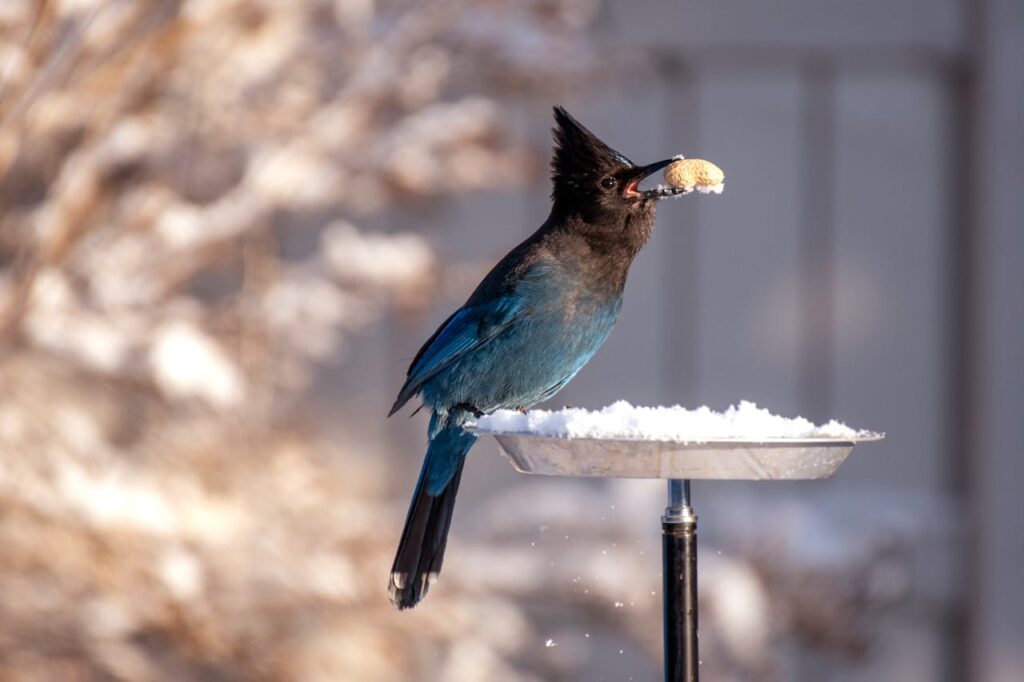
While it’s impossible to create a completely bear-proof bird feeder, there are several methods to make your feeder more bear-resistant. The first step is to hang the feeder in a way that is difficult for bears to reach. As mentioned earlier, placing the feeder at least 10 feet above the ground and 5 feet away from trees or poles will help keep it out of a bear’s reach.
You can also install a pulley system to help raise and lower the feeder more easily. Another effective option is using a cable between two trees or poles, suspending the feeder in the middle where bears can’t easily access it.
Bear-resistant bird feeders, often made from metal or heavy-duty materials, are designed to withstand the force of a bear’s paws. These feeders are more durable but may still need to be hung in a bear-inaccessible location. Additionally, using deterrents like electric fences or sprinklers that activate when a large animal approaches can keep bears at bay.
Is There Such a Thing as a Bear-Proof Bird Feeder?
While there are bear-resistant bird feeders available on the market, none are entirely bear-proof. Bears are strong and determined creatures, and even the toughest feeders can be damaged or destroyed by a determined bear. Bear-resistant feeders are typically made from durable materials like metal, and some designs feature mechanisms that make it harder for large animals to access the seed or suet inside.
However, the most effective approach is not the feeder design itself but the way it’s hung. Suspended feeders that are hung high and far from trees or poles can make it nearly impossible for bears to reach the food. Additionally, taking feeders down during peak bear activity times, such as early morning and late evening, further reduces the risk of attracting bears.
How Do You Secure a Hanging Bird Feeder?
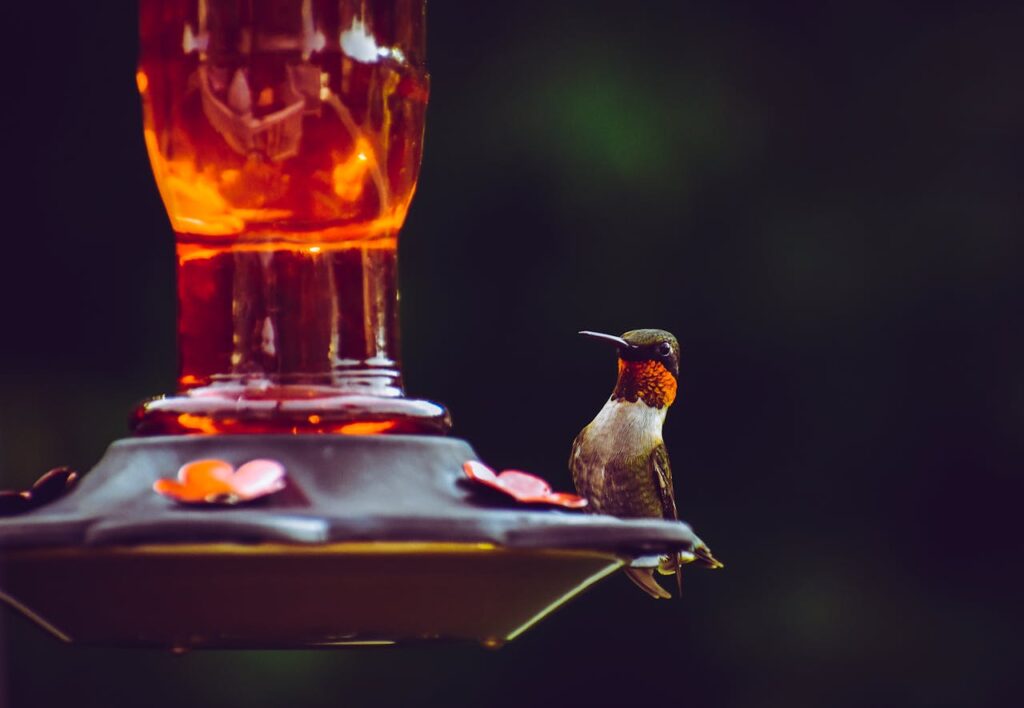
Securing a hanging bird feeder properly is key to keeping bears and other large animals from getting to it. The first step is to choose a secure location for the feeder—somewhere that a bear cannot easily reach by standing on its hind legs or climbing nearby structures. Ideally, the feeder should be hung at least 10 feet off the ground and suspended from a strong cable or pole.
To make the feeder more secure, use a cable system that spans between two trees or poles, with the feeder hanging in the middle. This keeps the feeder out of reach, even if the bear attempts to climb nearby trees. You can also add a pulley system, which will allow you to raise and lower the feeder for refilling while keeping it high up when in use.
It’s also important to secure any mounting brackets or hooks you’re using. Heavy-duty materials like metal and steel are preferred for hanging a feeder in bear country, as they are strong enough to withstand the weight of a large animal if it tries to pull the feeder down.
What Food Does Not Attract Bears?
Bears are attracted to most high-calorie foods, especially those with strong smells. To avoid attracting bears, it’s best to limit the types of food placed in your bird feeder. Avoid using foods that are especially appealing to bears, such as suet, nuts, and fruit. Instead, consider filling your feeder with black oil sunflower seeds or safflower seeds, which are less likely to attract bears.
Additionally, keeping bird food inside when not actively feeding birds is important in bear country. When bears are active, such as in spring and early fall, you can also consider removing feeders altogether or using alternatives that don’t attract bears, like bird baths or native plants that naturally attract birds without supplemental feeding.
By following these steps and securing your bird feeders properly, you can enjoy birdwatching without the worry of attracting bears to your yard.
What Smell Will Keep Bears Away?
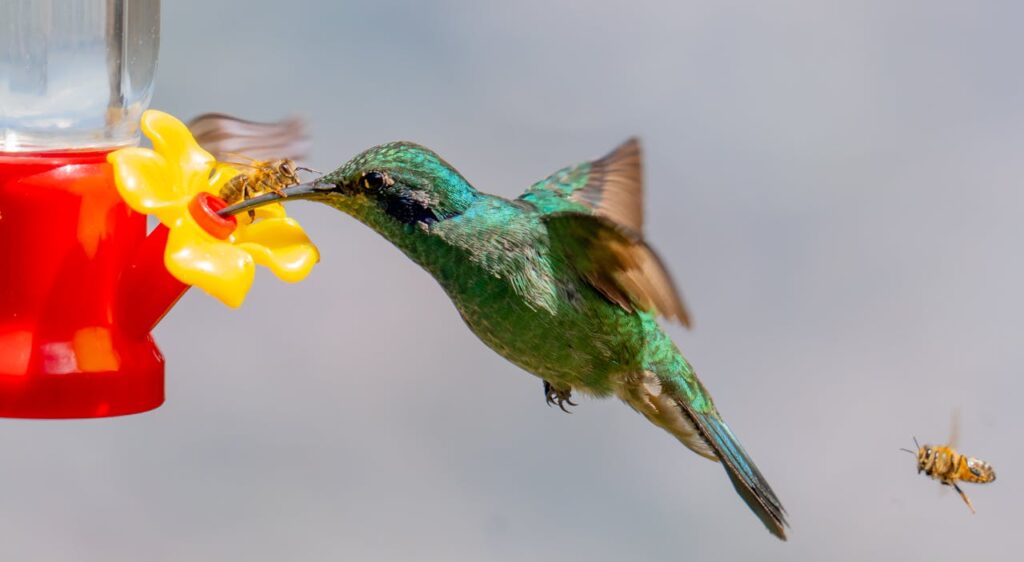
Bears have an incredibly sensitive sense of smell, which they rely on to find food from long distances. Certain strong smells can act as natural deterrents and help keep bears away from your property. Some scents that are known to repel bears include:
- Ammonia: Bears find the smell of ammonia extremely unpleasant. You can use ammonia-soaked rags or spray ammonia around areas you want to protect. Just be cautious, as ammonia can be harmful to pets and children.
- Pine Oil or Pine-Scented Cleaners: Bears dislike the smell of pine oil, which makes it a good option for deterring them. Spraying pine-scented cleaners around bird feeders, garbage cans, or other areas that might attract bears can be helpful in keeping them away.
- Vinegar: Similar to ammonia, the strong, sour scent of vinegar can also deter bears. Spraying vinegar around outdoor spaces, especially near garbage or bird feeders, can create an unpleasant environment for a bear’s sensitive nose.
- Pepper or Capsaicin Sprays: Bear sprays, which contain capsaicin, a compound found in chili peppers, are used as a bear deterrent in case of close encounters. These sprays are strong and will repel bears if used directly in an emergency. Some people use pepper spray around areas where bears frequent to keep them from returning.
While these smells can act as temporary deterrents, it’s important to remember that they may not work forever, especially if a bear is hungry or determined. Properly securing your food sources, garbage, and bird feeders is the most effective way to prevent attracting bears.
What Scares Bears the Most?
Bears are naturally shy animals and usually prefer to avoid human interaction. However, certain things can effectively scare bears away if they do wander too close to your home or campsite:
- Loud Noises: Bears are generally afraid of loud, unfamiliar sounds. Yelling, banging pots and pans, or blowing an air horn can startle a bear and make it retreat. Some people also keep whistles or bells handy while hiking in bear country to warn bears of their presence before an encounter occurs.
- Dogs: Bears are often frightened by barking dogs, especially larger breeds. Many homeowners in bear-prone areas keep dogs to help deter bears from entering their property. However, it’s important to keep dogs on a leash during hikes or camping trips, as some dogs may unintentionally provoke a bear if they get too close.
- Bright Lights: Flashing bright lights or using motion-activated lights can help scare off bears at night. Bears are usually more active during dawn and dusk, and the sudden illumination can startle them enough to make them flee.
- Bear Spray: As mentioned before, bear spray is a highly effective tool in scaring off a bear if it gets too close. It is designed to create a cloud of capsaicin that irritates the bear’s eyes, nose, and throat, causing temporary discomfort and encouraging the bear to retreat.
- Fire: While bears are naturally curious, they are generally wary of fire. If you’re camping in bear country, keeping a campfire going can help discourage bears from approaching your site.
While these deterrents can help scare off bears, the most important thing is to avoid attracting them in the first place by properly securing food, garbage, and bird feeders. Taking preventive measures will help reduce the likelihood of a bear encounter.

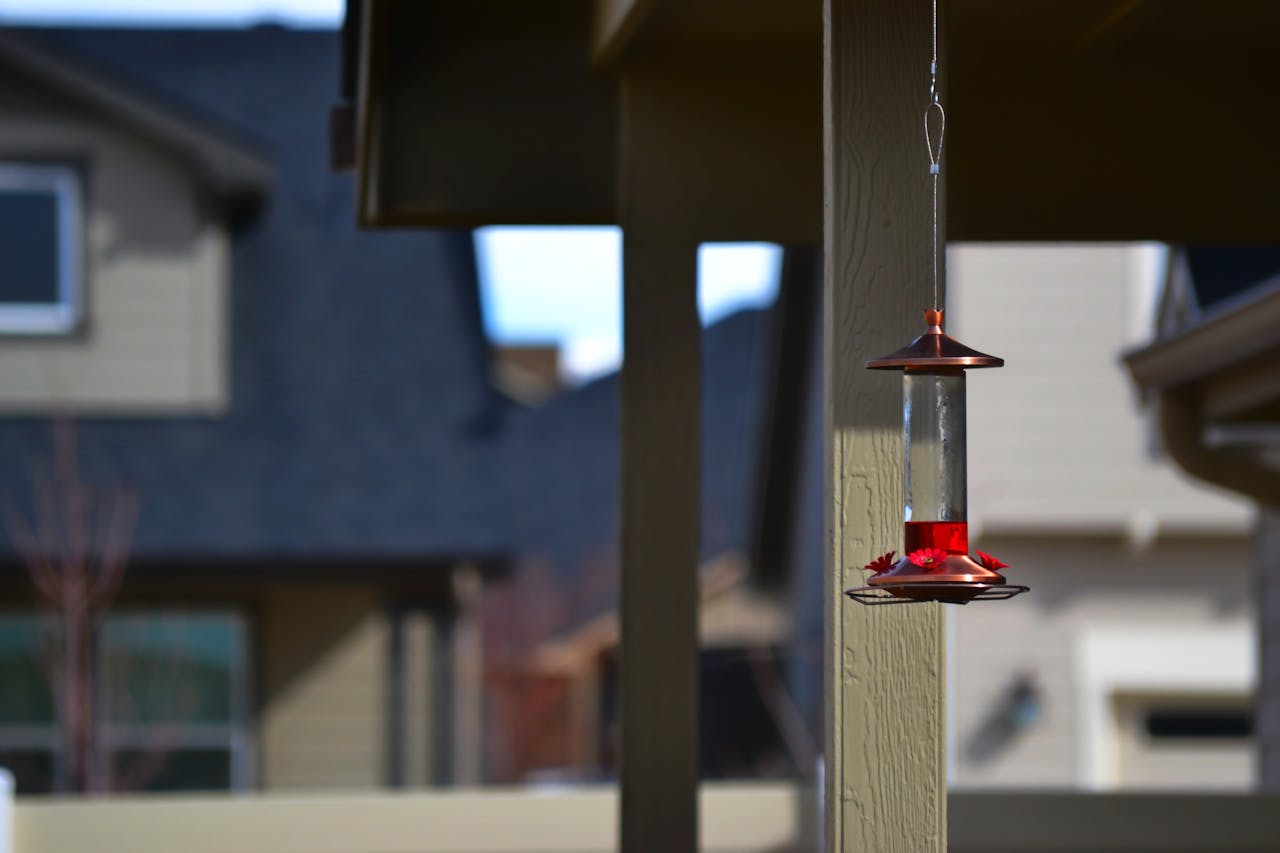
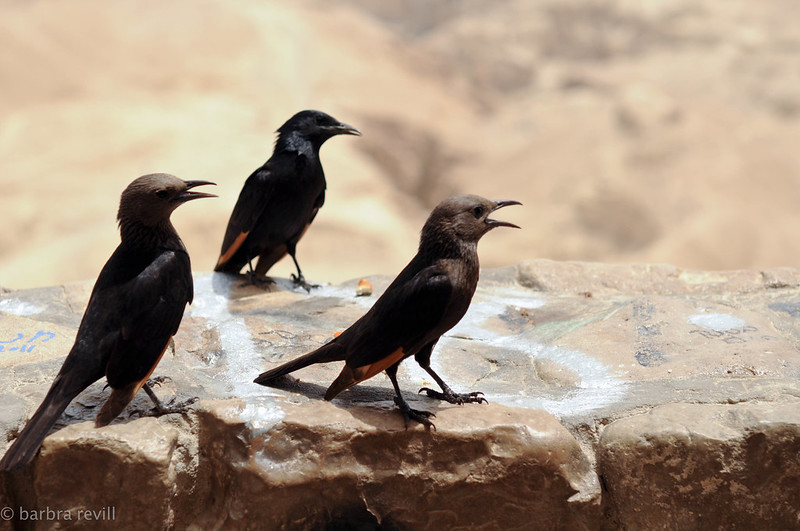
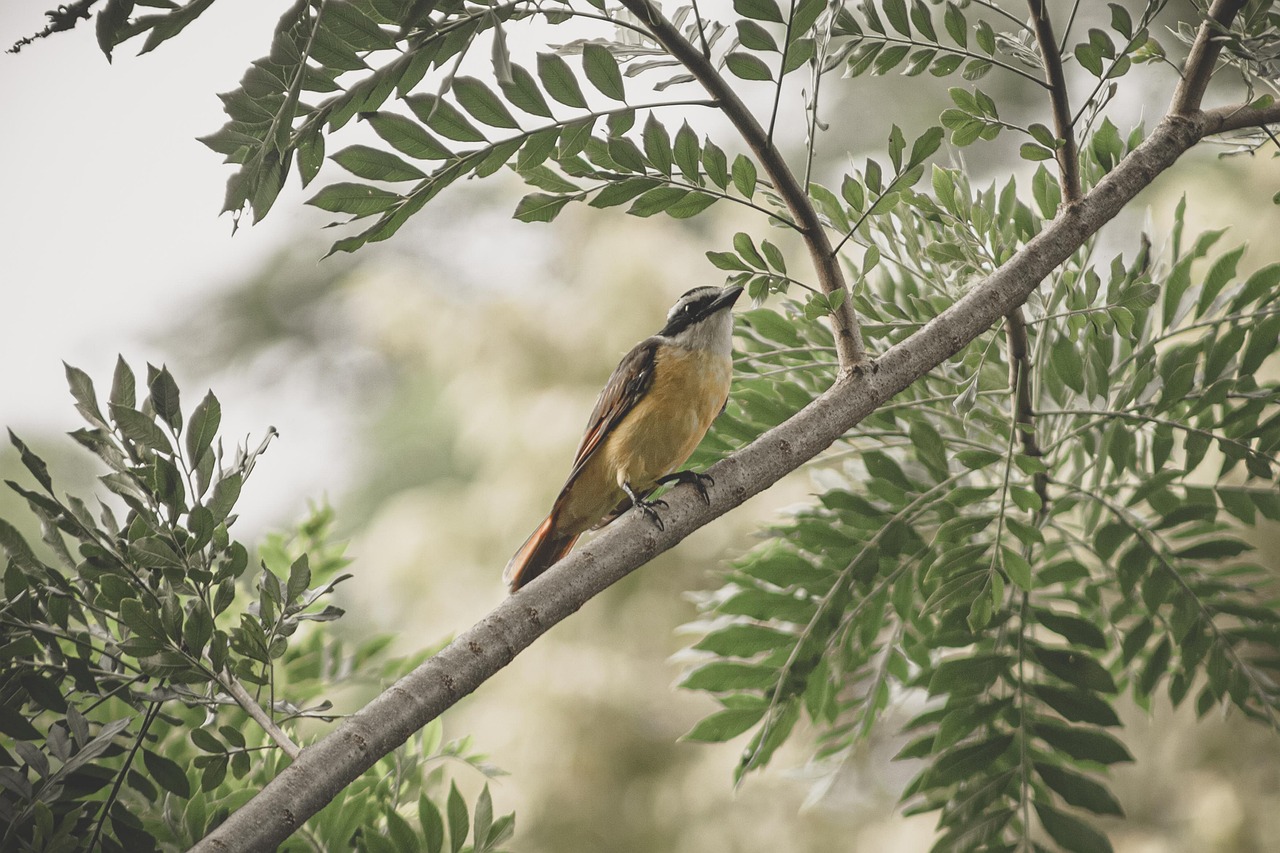
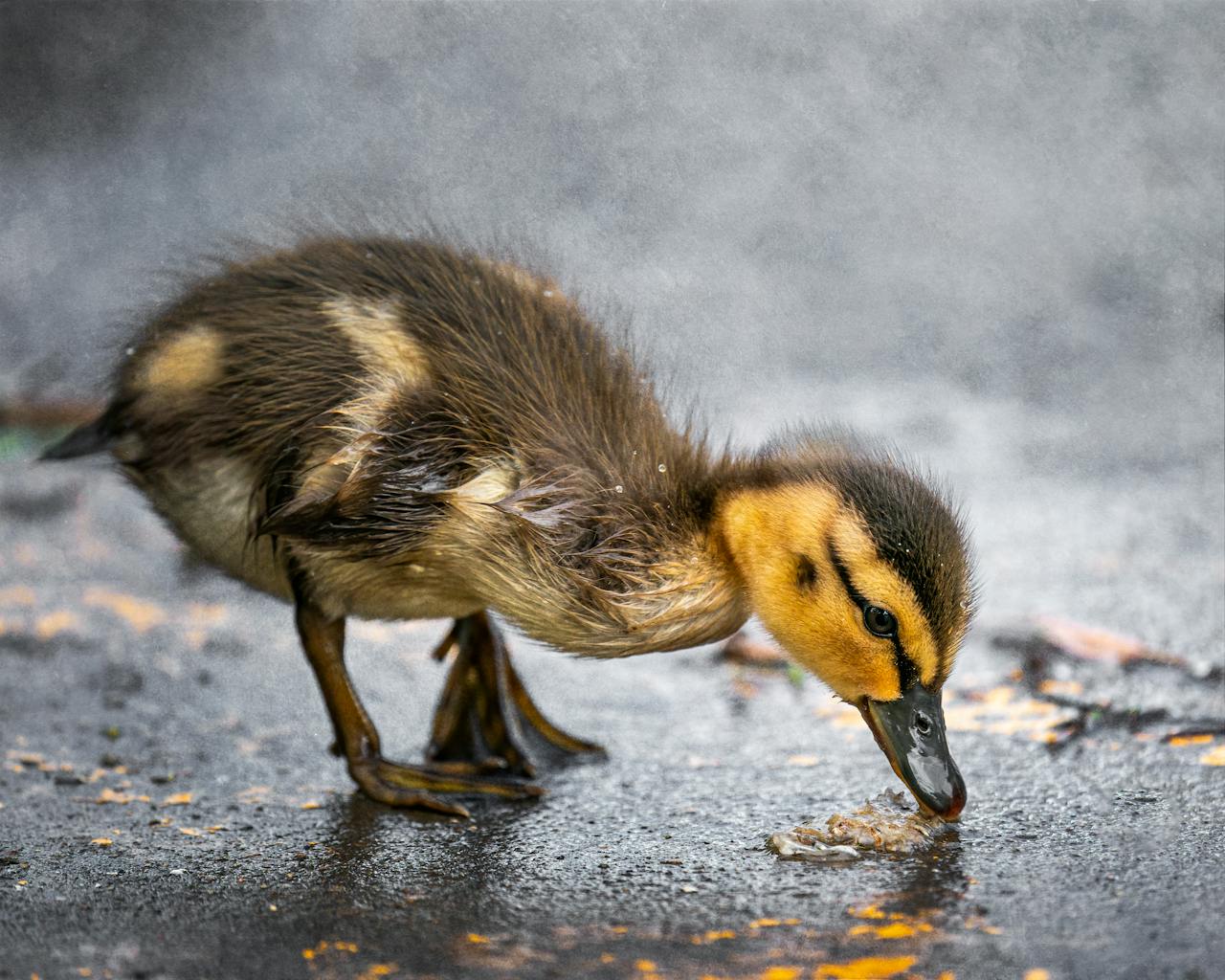
Leave a Reply